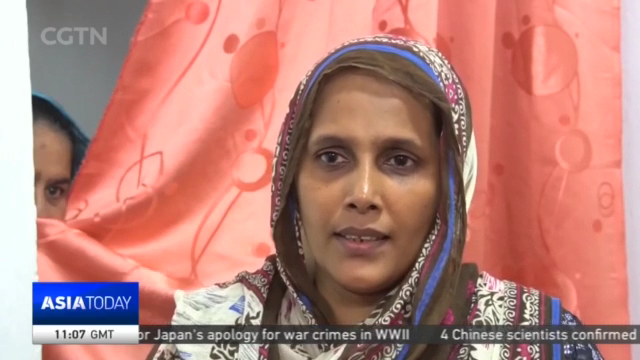
19:39, 01-May-2019
Easter Attack Aftermath: Fears Sri Lanka's veil ban could increase isolation
Updated
19:30, 04-May-2019
02:25

The Sri Lankan government has banned face coverings saying the decision is for the safety and security of its citizens. After the bloodbath of the Easter Sunday attacks, the country's president issued the order. But, many Muslim women are now being forced to remain in their homes prompting fears of isolation. Ravinder Bawa reports.
It's a natural instinct for many Muslim women to cover their face. It is a part of traditional attire for them. But according to a new directive they cannot cover their face. After the Easter Sunday attacks, Sri Lanka has banned veil for security reasons. We ask women about the ban, but they refuse to speak. And then we spot the member of Parliament A.H.M. Fauzi.
A.H.M. FAUZI MEMBER OF PARLIAMENT, SRI LANKA "I have been told a woman who was wearing the hijab for 17 years has been crying since yesterday."
With his help, we manage to go to Mirisiya Tabreen' house.
MIRISIYA TABREEN CITIZEN, SRI LANKA "I know it is a law but what will those women do who have always worn a burqa. They will not be able to step out."
The ban order does not mention any ethnic group or any name of the veil, but it implies the burqa which many Sri Lankan Muslim women wear.
RAVINDER BAWA COLOMBO "On the face of it the Muslim community has welcomed the ban but many fear that this decision might further isolate the community."
FAZIL FAROOK SPOKESPERSON, JAMIYATHUL ULEMA "Many are not going to work, the shops are closed, many businesses are shut, some people have moved out of the country and others are thinking of what to do with their families, we are disturbed."
With this ban Sir Lanka is the only country in Asia to take this step. Muslims are the second largest minority accounting for 10 percent of the population here. And the biggest sufferers are minority within the minority -the Muslim women. RAVINDER BAWA, CGTN, COLOMBO.

SITEMAP
Copyright © 2018 CGTN. Beijing ICP prepared NO.16065310-3
Copyright © 2018 CGTN. Beijing ICP prepared NO.16065310-3